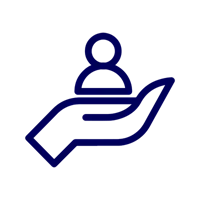

Jane Collins
Associate Director at Arup
Be curious. Engineering is all about problem solving, but you will also need to find out and define what the problem is.
About Jane...
Who am I?
"To me, the most important aspect of my day to day work is the need to communicate. That might be with clients, with colleagues or with collaborators elsewhere on the project team. I need to find out what the project needs from me and I need to be able to explain to others what I do. It might be technical or it might simply be the need to plan and organise the work that we do.And as the leader of a team of 40 people, spread over six offices, my abilities as a manager are regularly tested and co-ordination is important to enable us to deliver successful projects."
What do I do?
"I provide specialist engineering input to multi-disciplinary projects. On my current rail project, I need to find out about the ground conditions and how these will influence our engineering solutions. This involves studying maps (current and historical), geology and applying my skills to interpret what I can see. I then provide input into the development of the new engineering design. That might be designing the foundations for a new bridge, or assessing the stability of a steep slope above a railway, or looking at the impact of drainage and how water flow can be controlled. I love the interaction with many other engineering disciplines and working together to find the best solution for the project.But most of all, I like the fact that everyday brings a new engineering challenge. That constant change and need for me to continue to develop as an engineer is why I come to work each day.The most common route into my career is to join as a graduate with a civil engineering degree. Starting salaries are about £25,000 depending on location, role and qualification."
How did I get here?
"I studied a wide range of subjects at school and was very unclear about my career path. Whilst studying for A levels in Maths, Further Maths, Physics and Geography it was suggested that Civil Engineering would suit me as a career. I haven't looked back since. I studied for a degree in Civil Engineering and then completed a Masters degree after working for a couple of years. I joined Arup as a graduate and have now been here for over 30 years. The breadth of my early education is still relevant to me - I am naturally curious and I am always learning new things from my colleagues.I am motivated by 'doing a good job'. That might be being part of a team that has built a major building that becomes part of the city around me (the Bridgewater Hall and the Arena in Manchester are two of my early projects). Or it might be by knowing that I have contributed to a project that makes a difference to the local community (I led a flood defence project that improved access to a public park and allotments). Working on railways and highways, I believe that I help make journeys better - more reliable and hopefully faster - for everybody including myself!"
The life I live
"I like to be busy. Sport is an important part of my life and I run, cycle and swim on a regular basis. What I most like is being outside and enjoying the landscape - I love being in the hills. "
My typical day
"I am mostly office based, but I travel between offices on a regular basis. I might be attending meetings with other engineering colleagues, working on projects or I may be at my desk dealing with emails and the practicalities of running a large team. Despite having a senior role that might be considered as 'management', I am still involved day to day in engineering projects. My current project is the Transpennine Rail Upgrade, working on improvements between Manchester and Leeds. There are some big engineering challenges to face and I spend a lot of time trying to understand how the existing rail line works and where the risks are to future improvements in journey time, reliability and capacity. My twice weekly commute between Manchester and Leeds/York provides a valuable insigth into how the customer feels."
My qualifications
"A levels in Maths, Further Maths, Physics and Geography.BSc in Civil EngineeringMSc in Foundation EngineeringMember of the Institution of Civil Engineers, Chartered Engineer."



